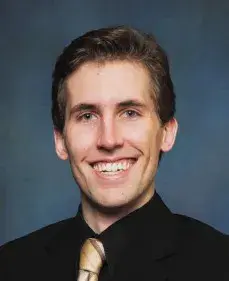- Infectious Disease
- Pharmacy Practice
- Surgery Pharmacy
Brandon Kulengowski, PharmD, PhD, BCPS
Assistant Professor
Dr. Kulengowski is a clinical pharmacist of surgical services at UK HealthCare and an adjunct professor at the University of Kentucky College of Pharmacy. For his undergraduate training, he majored in chemical engineering and biology while publishing research in neurobiology and electrochemistry. He then received his PharmD and PhD from the University of Kentucky College of Pharmacy. During his professional and graduate training, he studied the treatment and modeling of multi-drug resistant organisms which has improved clinical practice by changing therapeutic recommendations and diagnostic considerations. Research interests: gram-negative multi-drug resistance organisms, microbiology, clinical microbiological tools and assays.
Myers-Briggs Type Indicator: INTJ-A (Architect)
Enneagram: Type Five (Investigator)
Clifton Strengths: Strategic, Analytical, Relator, Achiever, Ideation
Publications
Expertise
Positions
- Adjunct Faculty
- Clinical Pharmacist, UK Healthcare Surgical Services
Education
- Doctor of Pharmacy, University of Kentucky
- Doctor of Philosophy, University of Kentucky College of Pharmacy

